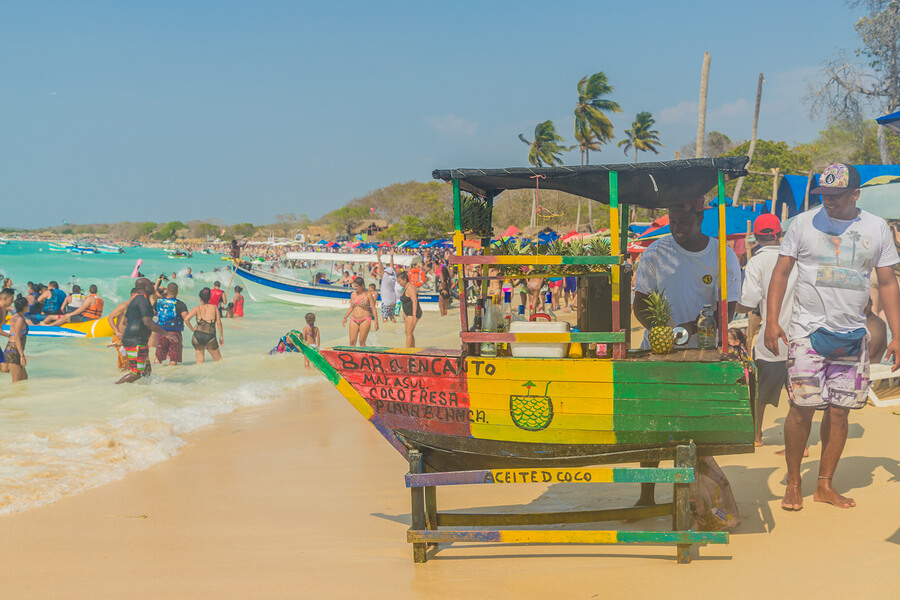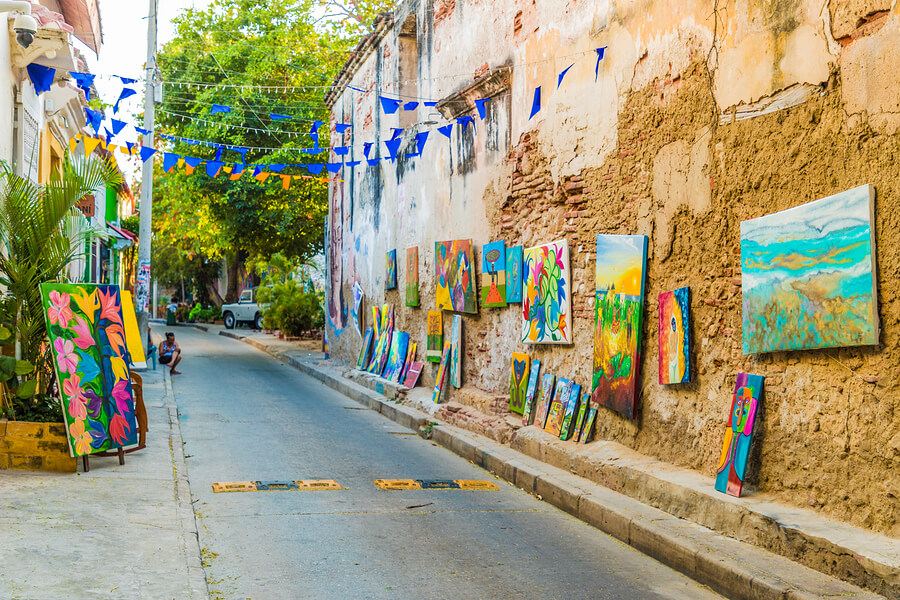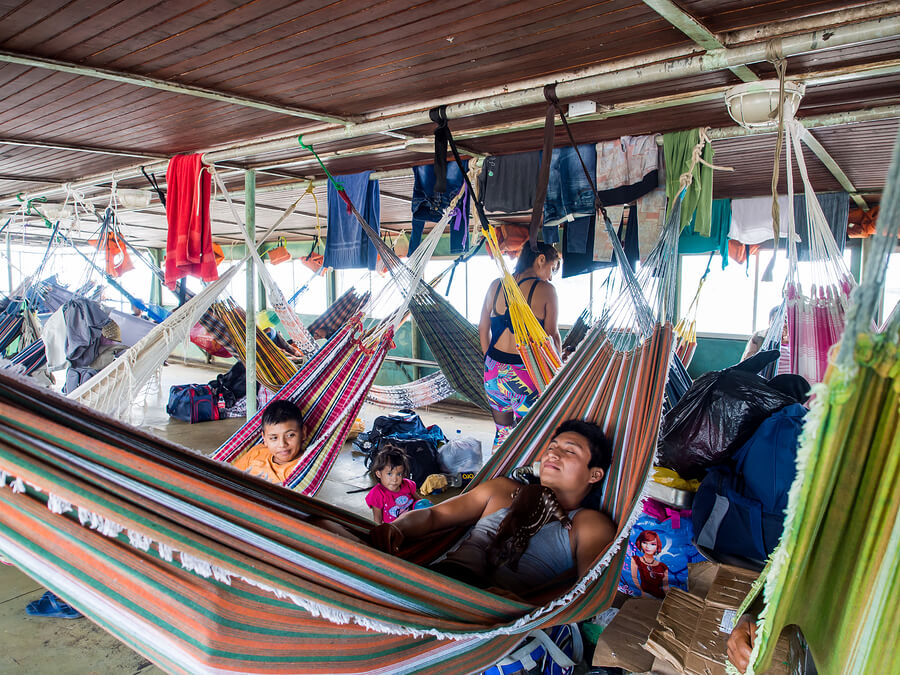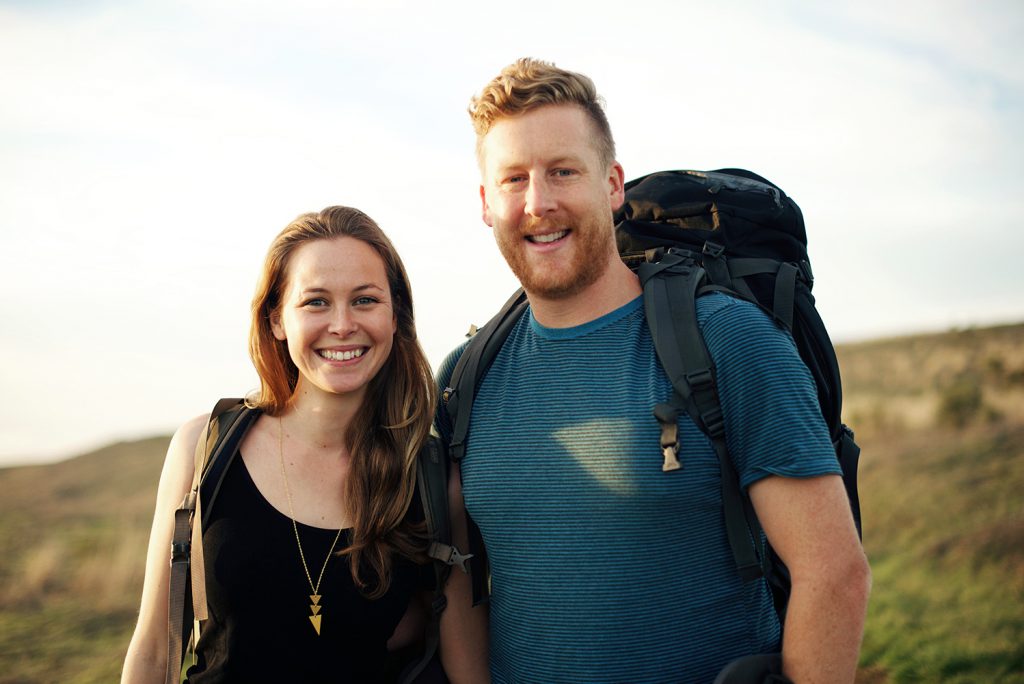For the past few month’s we’ve been conducting interviews with some of the most exciting and experienced travel bloggers on the planet. In this very special interview, we’ll be talking tech and adventure with Jules and Christine from Don’t Forget to Move.
We see that you’ve used a lot of technology on your travels (drones etc), have you found yourself using more tech as you’ve travelled. Is there one piece of technology (or an app) that you would advise for someone heading out to South America?
Our technology use has definitely grown for each year we’ve been on the road. In the last five years particular, as we’ve transitioned from being travelers to travel content creators, we’ve had to increase the amount of camera equipment we carry. Between the drone, several cameras / lenses, laptops, etc, it’s a lot! But it’s also work now, so we can’t complain too much.
In the past, technology and travel was simple. When I first started traveling I didn’t have a smartphone, because they didn’t even exist. There was no such thing as Facebook and to communicate with people back home I’d have to find an Internet cafe to send off an email. Now technology has made it so easy to travel, in both a good and bad way. As much as technology has helped us, it’s also important to remember to put it away while traveling to enjoy being in a foreign country, having foreign experiences.
That being said, I wouldn’t travel anywhere without my iPhone X these days. The camera quality is so good that sometimes it allows me to leave my heavy camera equipment at home. Now I can just go out and explore without lugging all my cameras and lenses. Plus it also works as a map, note taker and music player while on the road.
The article you wrote about the Pina Colada in Colombia sounds really great! Aside from that particular one, is there any drink that you would definitely recommend?
We’re a sucker for a good Piña Colada, so making our own fresh ones in Colombia was a lot of fun. If it’s not that, you can’t go wrong with any other rum based drink, like a Cuba Libre. Or if we feel like some extra sugar, a Caipirinha hits the spot. But we’re also big beer drinkers, so that’s usually our go to to cool down beverage after a big day exploring.

Your trip to the Nazca Lines seems pretty wild, especially for $70USD. Is that something that you would do again?
Visiting the Nazca lines was a fun adventure. At the time, when I was backpacking on a budget, it seemed like a lot to spend, but $70USD for a personalized flight over the lines isn’t a lot compared to some activities in different countries. Looking back now I think it was a really run trip and one I’d recommend, but only if you were in the area. I wouldn’t personally make the trip out there just to see the lines, but they were pretty impressive. There are so many amazing, historical and cultural things to see in Peru that the Nazca Lines just make up a small part of it.
We love your article on choosing a responsible tour company. We work with some of the best and most ethical that we can find. Do you have any takeaways from some of the ethical travel or volunteer companies that you have worked with?
As responsible tourism professionals we love to see when companies and destinations are prioritizing their local communities, environment and animals. It shows us that they’re willing to commit to a sustainable tourism future. We’ve found that the best ethical travel companies are usually the ones that have an active interest in supporting sustainability and are operated by local people who care about protecting their place in the world. As more travel destinations open up to tourism, we hope that companies continue to prioritize sustainability over profits.
In South America, you’ve been to Brazil, Peru, and Columbia. Out of the three countries, did any have a particular aspect of culture that you enjoyed the most? Is there any that you wish you could bring home to Europe with you?
And those are just the places we’ve written about. We’ve also traveled to Guyana, Ecuador, Bolivia, Argentina and Chile! Out of the three mentioned, it’s hard to pick a favorite, but Colombia would have to be up there. The vibrant culture of the north, which has an interesting mixture of indigenous, European and Afro-Cairbbean cultures, has always been a special place for us. We love walking around the old colonial streets of Cartagena, on a warm night, where traditional music is playing in parks and there’s nothing better than an ice cold beer.

You’ve obviously stayed in a fair few hostels in your time. Do you have any advice for someone who has never booked one in another country before? How would you go about researching one?
Over the years we’ve stayed in hundreds of hostels along our travels, each one presenting something different and unique depending on what we were looking for at the time. When researching a hostel the first question you should ask yourself is, what do I want to get out of it? Hostels are a great way to reduce your travel costs while traveling, but you can also get more out of the hostel experience than just a few savings.
Hostels open up your world to a whole network of other travelers looking to connect, share experiences and go off on adventures. Whether you’re backpacking solo, with friends, a large group or with your partner, each hostel offers a different experience depending on where you book. The same goes for the type of atmosphere that you want to get involved in. If you want a place to chill and relax, don’t book at a hostel notorious for partying.
When booking a hostel the best word of advice is to take your time reading the reviews to get a sense of the vibe. If you’re looking for a quiet place to read a book and unwind from a crazy adventure, avoid places that mention parties. Or if that’s exactly what you’re looking for, you can even filter reviews by searching for specific keywords. There are also plenty of Facebook community groups that you can join for traveling in just about every country or region of the world. Join the groups, interact with the community and get their recommendations. Reviews from fellow travelers are always going to be the most worthwhile.
If someone could have given you one piece of advice before traveling to South America, what do you wish it was?
Don’t be afraid to get off the Gringo Trail and go exploring! This isn’t so much advice for ourselves, because we feel like we did a pretty good job at that over the years, but for anyone beginning their South America travels this is important to note. There is so much more to South America than what you find in a Lonely Planet, so don’t be afraid to get off the beaten track and take on something new. One of our favorite adventures was a trip up to Cabo de la Vella in northern Colombia, where the journey out to this barren land was just as enjoyable as the destination. Or when we took slow boats up the Amazon, sleeping in hammocks strung up on the boat each night.


